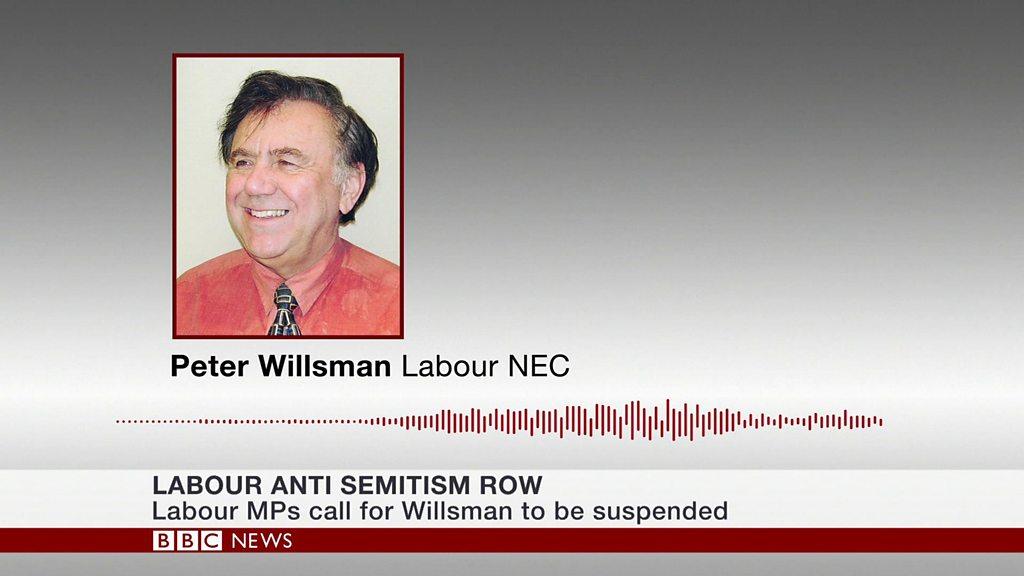Peter Willsman: Labour suspends NEC member over anti-Semitism remarks
- Published
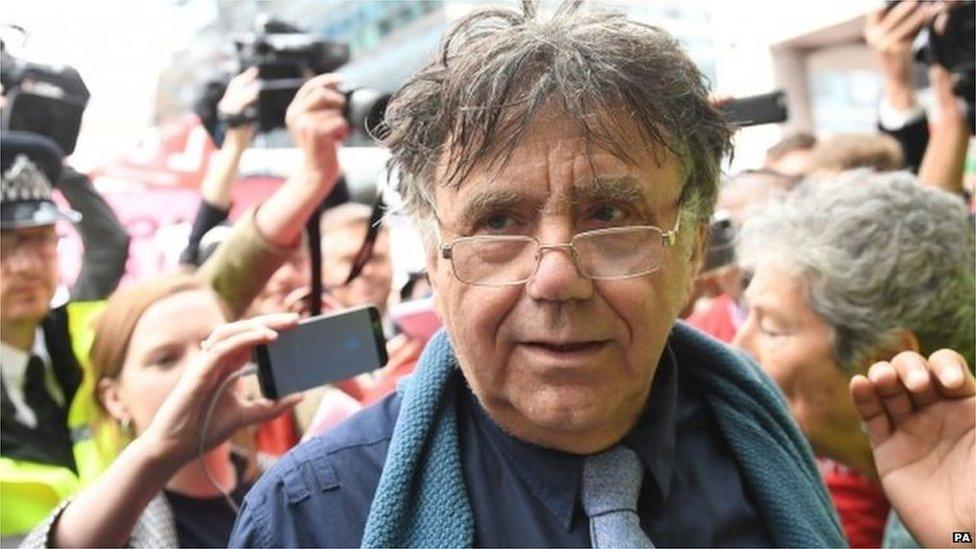
A member of Labour's ruling body, the NEC, has been suspended over remarks he reportedly made about the party's anti-Semitism row.
LBC radio reported, external that Peter Willsman was recorded saying the Israeli embassy was "almost certainly" behind the row.
Various Labour MPs, including deputy leader Tom Watson, and the Board of Deputies of British Jews have condemned the remarks.
The BBC has approached Mr Willsman for comment about the recording.
He is accused of saying: "This is off the record. It's almost certain who is behind all this anti-Semitism against Jeremy [Corbyn], almost certainly it's the Israeli embassy."
The remarks were recorded in January during a meeting between Mr Willsman and American-Israeli author Tuvia Tenenbom at a hotel in Oxford, Mr Tenenbom told the BBC.
The author said he had spotted Mr Willsman dining on his own and approached him and they ended up talking for some time, during which time the remarks were made. He said he was unaware it was being recorded by the sound man from his crew, until after the conversation was over.
The Board of Deputies of British Jews president Marie van der Zyl called for Mr Willsman's expulsion from the party, saying he had "not only denied anti-Semitism in the Labour Party but has resorted to a well-known anti-Semitic trope to make his point".
And Fiona Sharpe, of Labour Against Anti-Semitism, said a suspension was "inadequate, inappropriate and insulting to the British Jewish Community", and pointed to the party's decision to expel former No 10 communications director Alastair Campbell "simply for admitting he voted for another party".
Labour peer Lord Falconer, who was asked by the party to head an inquiry into anti-Semitism claims in March, told the BBC that unless it turned out that Mr Willsman was not the person recorded on the tape, or that it had been doctored, "he should definitely be expelled".
"The Labour Party needs to do something very very quickly about it. They have suspended him, which is right, because they have got to give him, legally, an opportunity to put his point of view. But within 14 days this process can be concluded, at an outside limit," he told BBC Radio 4's World at One.
"The Willsman case is an acid test of whether or not the Labour Party can be trusted in relation to anti-Semitism."
Mr Watson condemned Mr Willsman's remarks and said they illustrated "how serious the problem of anti-Semitism is in our party".
The Labour Party said: "Peter Willsman has been suspended from the Labour Party, pending investigation."
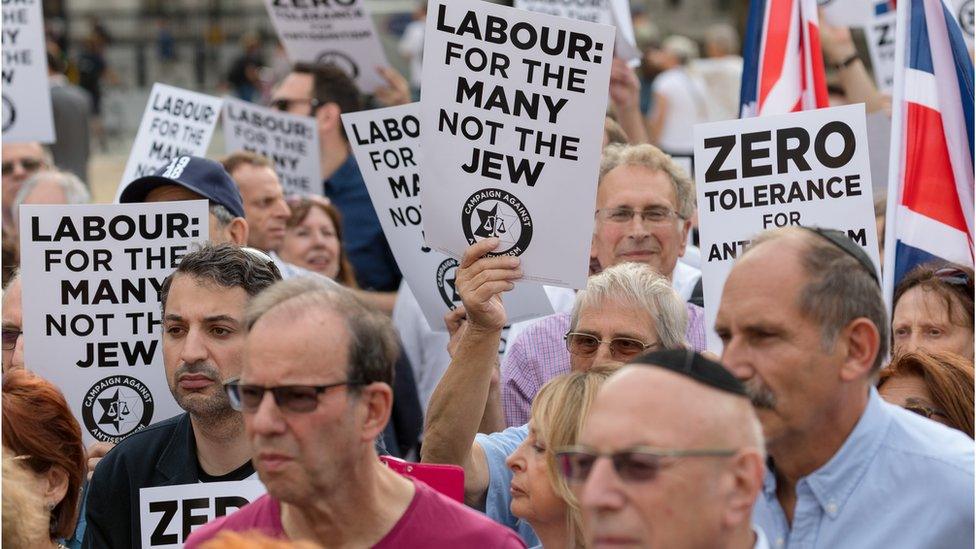
Campaigners against anti-Semitism have protested about the party's handling of the issue
A spokesperson said the party took complaints of anti-Semitism "extremely seriously" and was "committed to challenging and campaigning against it in all its forms".
Mr Willsman was involved in another row last year, after he was recorded saying he had never seen anti-Semitism in the party ,and suggesting Jewish "Trump fanatics" were behind the accusations.
He later apologised and said not all his remarks had been accurately reported but that he would refer himself for equalities training.
Mr Willsman was re-elected to the NEC - the body acts as Labour's governing body and oversees the direction of the party and its policy-making process - last year.
Labour has been plagued by accusations of anti-Semitism since mid-2016 and some of its MPs have quit the party, citing its handling of the claims as one of the reasons.
Leader Jeremy Corbyn has insisted he is getting to grips with the issue and has improved the party's internal disciplinary procedures.
In May, the Equalities and Human Rights Commission launched a formal investigation into whether Labour had "unlawfully discriminated against, harassed or victimised people because they are Jewish".
At the time, Labour's shadow equalities minister Dawn Butler said the party would "fully co-operate" adding: "The Labour Party at its heart and core is an anti-racist party… so I see this as a way of ensuring, with the scrutiny of the EHRC, that the Labour Party's rules and policies are robust and fair."
She added that the investigation would help Labour "build trust with the Jewish community".
- Published31 July 2018
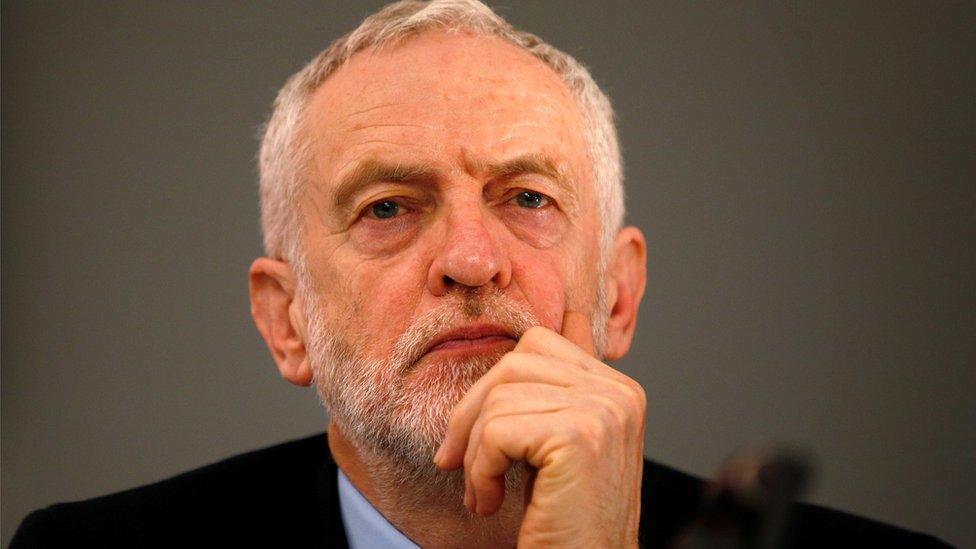
- Published18 November 2020
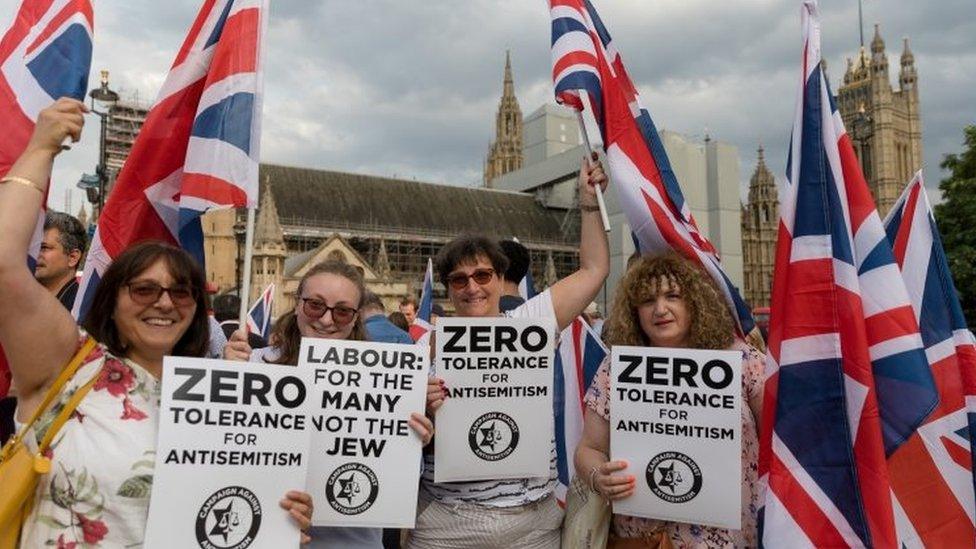
- Published31 July 2018
